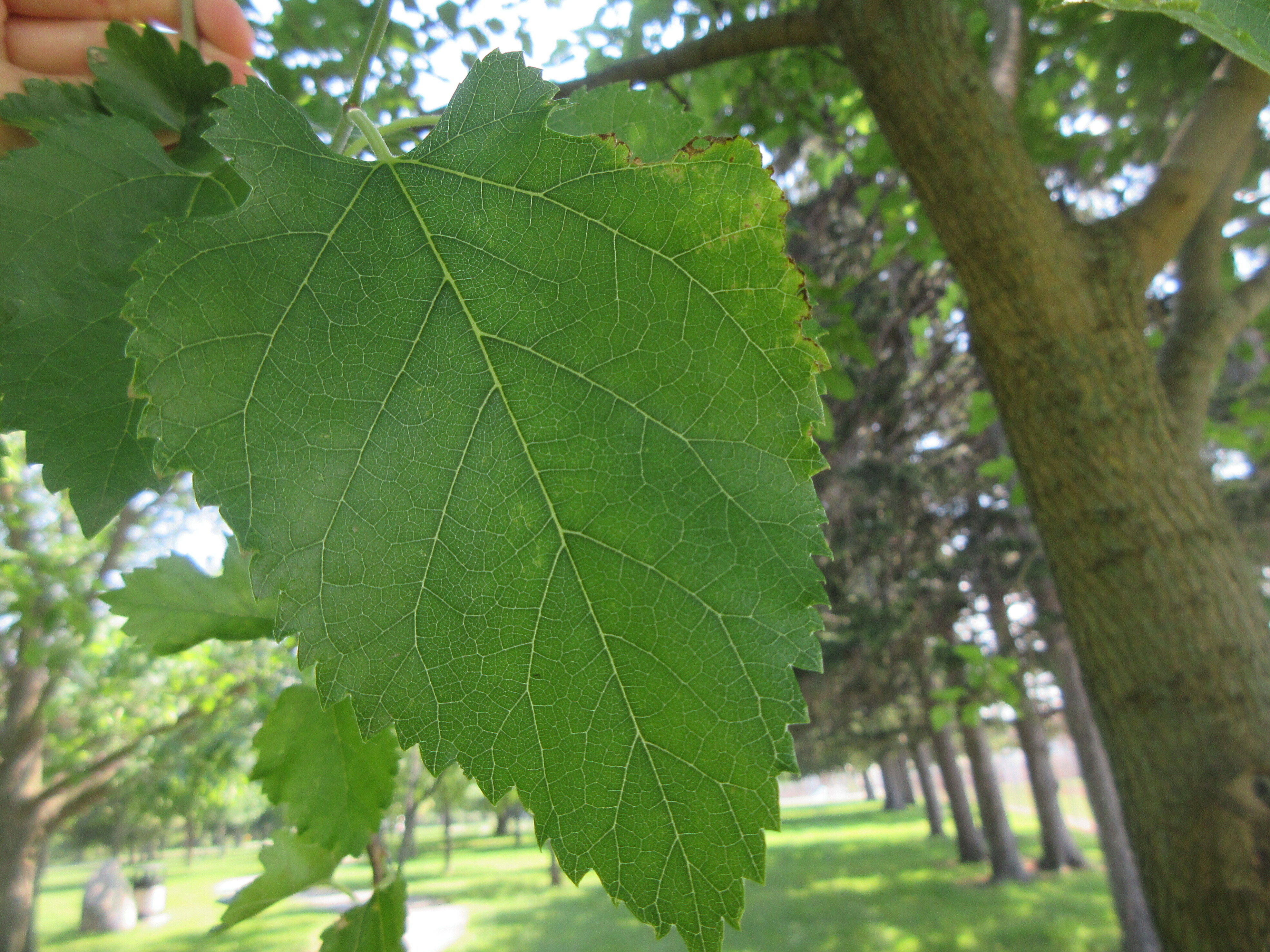White Mulberry
Morus alba
Description
NOT RECOMMENDED TO PLANT: INVASIVE TENDENCIES. Morus alba, or white mulberry, is not recommended to plant as it has invasive tendencies. It aggressively spreads through wildlife, outcompeting native species and hybridizing with the endangered red mulberry. It prefers warm, moist, well-drained loamy soils, in a sunny location, and can withstand drought once well established. Even when selecting male or fruitless cultivars to avoid seed spread, the species has extremely fast growth rates and will require continual pruning. The tree is messy, dropping fruit that stains surfaces and leaves in the fall. The Auditor General of Ontario has specifically flagged this tree species as a concern in the nursery trades ("Value-for-Money Audit Management of Invasive Species," 2022) and as such should not be recommended for planting. As an alternative native to North America, consider Morus rubra or Nyssa sylvatica.
Planting Site and Native Range
Planting Site
Tree Characteristics
Growth Rate
Fast (60cm or more per year)
Width
9 - 15m
Height
9 - 15m
Soil Quantity
>30 m3
Leaves
Deciduous
Insects and Diseases
Insects and Diseases
No serious or common issues in the urban environment.
Tree Tolerances
Soil Salt Tolerance
Tolerant
Salt Spray Tolerance
Moderate
Flooding Tolerance
Moderate
Drought Tolerance
High
pH Tolerance
Tolerant of acid to alkaline soil (5.0 to 8.0)
Shade Tolerance
Full Sun Part Shade
Plant Hardiness Zone
Zone 5 (a/b) | Zone 6 (a/b)
Management Notes
Management Notes
Fruit litter may be an issue
Contact us:
info@vinelandresearch.com









